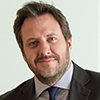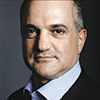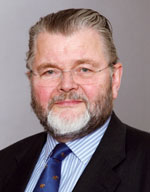Latest News

Switzerland is a key part of the global business model at BNP Paribas Securities Services, whose successful acquisition last June of Credit Suisse Prime Fund Services has helped it to become an industry leader in alternative fund administration.
With a depositary bank network spanning 15 European jurisdictions, EUR1.2 trillion of assets under depositary and 1.8 trillion of assets under administration, BNP Paribas Securities Services is leveraging its scalability and breadth of expertise to bring support to Switzerland's fund management community; both traditional and alternative.
Commenting on the PFS acquisition, Garrick Smith (pictured), Head of BNP Paribas Securities Services Switzerland, emphasises
- 24/03/2016

It is now one year in to the Swiss Collective Investment Scheme Act (CISA) and overall impressions appear to be that it has been a success. One particular aspect of CISA, namely the requirement for alternative fund managers marketing their funds in Switzerland to "unregulated qualified investors" (eg pension funds, family offices) to appoint a Swiss Fund Representative and Paying Agent, has proven to be no more than a mild shower in a teacup.
A year ago, fund managers were aghast at the idea of having to incur yet more regulatory costs, but those fears have proven to be largely
- 24/03/2016

- 24/03/2016

Emerging Market corporates have feasted on cheap US dollar debt over the last few years. According to a PwC report (Global Economy Watch – May 2015, "Will dollar denominated debt become an emerging economy epidemic?") since the US Federal Reserve introduced the first round of quantitative easing in 2008, dollar denominated debt rose from USD6 trillion to USD9 trillion in 2014.
In October that year, the Fed's decision to stop QE helped the greenback to strengthen, which it has been doing ever since. Some fear that with global instability, as investors rush to the USD as a safe haven asset in
- 24/03/2016

- 24/03/2016

The actions of central banks over the past few years have been particularly hard for hedge funds, especially fundamental stock pickers, and whilst global macro and CTAs have been able to make some solid returns (the latter more in 2H14), there's been precious little to celebrate in hedge fund land.
According to Preqin's latest global hedge fund survey, 33 per cent of investors felt that hedge funds had fallen short of expectations in 2015. Fund managers shared this sentiment, with 40 per cent saying that they too felt performance had lagged; the average hedge fund returned just +2.02 per cent.
Central
- 24/03/2016

Two years ago, in recognition of the regulatory burden facing Swiss fund managers, Pfaeffikon-headquartered Etops, an independent operational service provider for hedge funds and investors like family offices and wealth managers, combined forces with Deloitte to develop a unique solution called Assetbox.
Assetbox contains a series of modules to support managers both in the setting up of operations and funds, registration with FINMA, as well as in the FINMA required ongoing processes and substance.
"Assetbox was a pioneering effort to make regulation digestible for hedge fund managers. We went directly to FINMA and established a quasi standard, which the market
- 24/03/2016

- 24/03/2016

Jabre Capital Partners is one of the industry's best-known hedge funds. Established by Philippe Jabre (pictured) in 2006, the Geneva-based hedge fund runs a variety of strategies that include: Multi-strategy, Equity Long/Short, Convertible Bonds, Emerging Markets and Event Driven.
With respect to its Emerging Markets strategy, Jabre Capital combines a top down global macro view with bottom up fundamental stock selection to build positions in a diversified portfolio.
Such has been the level of volatility coming out of emerging market economies, principally China, that finding the right investment opportunities and trying to time the right entry and exit points has been
- 24/03/2016

Mergers and acquisitions and energy-focused equity long/short are two of the most attractive fund strategies for 2016 at Unigestion, according to the group's Managing Director and Head of Hedge Funds, Nicolas Rousselet (pictured).
Identifying the best strategies for investors has been no easy task in recent times, thanks in large part to the excessive interference of central banks. In a bid to boost inflation by weakening their currencies, the European Central Bank and the Bank of Japan have both resorted to negative interest rates. The ECB now has a -0.4 per cent deposit rate for banks wishing to park their
- 24/03/2016

By Michaël Malquarti (pictured), SYZ Asset Management – Although the phenomenal growth in index management since the 1990s had already begun to shake up the fund management industry, the 2008 crisis triggered a more profound reform process. This change is particularly visible in the alternative investments arena. As well as reinforced standards governing hedge funds, the most spectacular transformation has probably been the emergence and astonishing growth of alternative UCITS in Europe.
Several factors underpin this situation. Current macro-economic uncertainty and the associated asset volatility are certainly behind stronger demand for different types of funds, generally perceived as being less risky.
- 24/03/2016

- 24/03/2016

Geneva-based SwissRepCo was established in January 2014 by industry veterans Dermot Butler (pictured), former chairman of Custom House Group, a leading fund administrator, and Lancelot Frick, a fifth generation Swiss private banker and CEO and President of Frick Capital SA. ("Frick").
SwissRepCo arose in response to FINMA's decision to beef up existing fund regulations that had been brought in in 2006. In 2013, those regulations were enforced under the Collective Investment Schemes Act (`CISA') but it wasn't until 1 March 2015 that foreign hedge funds were mandated to appoint a Swiss legal representative and paying agent to continue distributing their
- 24/03/2016

There was a degree of trepidation among foreign hedge funds when Switzerland formerly introduced a revised version of the Collective Investment Scheme Act (CISA) on 1 March 2015, bringing hedge funds under the watch of FINMA, Switzerland's financial regulator, for the first time.
Previously, only funds that were registered for public offerings – now referred to as distribution to non-qualified investors (i.e. retail investors) – had to appoint a Swiss legal representative and paying agent. As of last year, it also became a requirement for foreign hedge funds looking to raise assets from Swiss qualified investors, defined under CISA as including
- 24/03/2016
Special Reports
Featured

- Intel
- May 20, 2024

- Intel
- May 17, 2024

- Awards
- May 16, 2024

- Intel
- May 16, 2024

- Intel
- May 15, 2024
Events
05 June, 2024 – 8:30 am
12 September, 2024 – 8:30 am
12 September, 2024 – 6:00 pm
24 October, 2024 – 8:30 am

